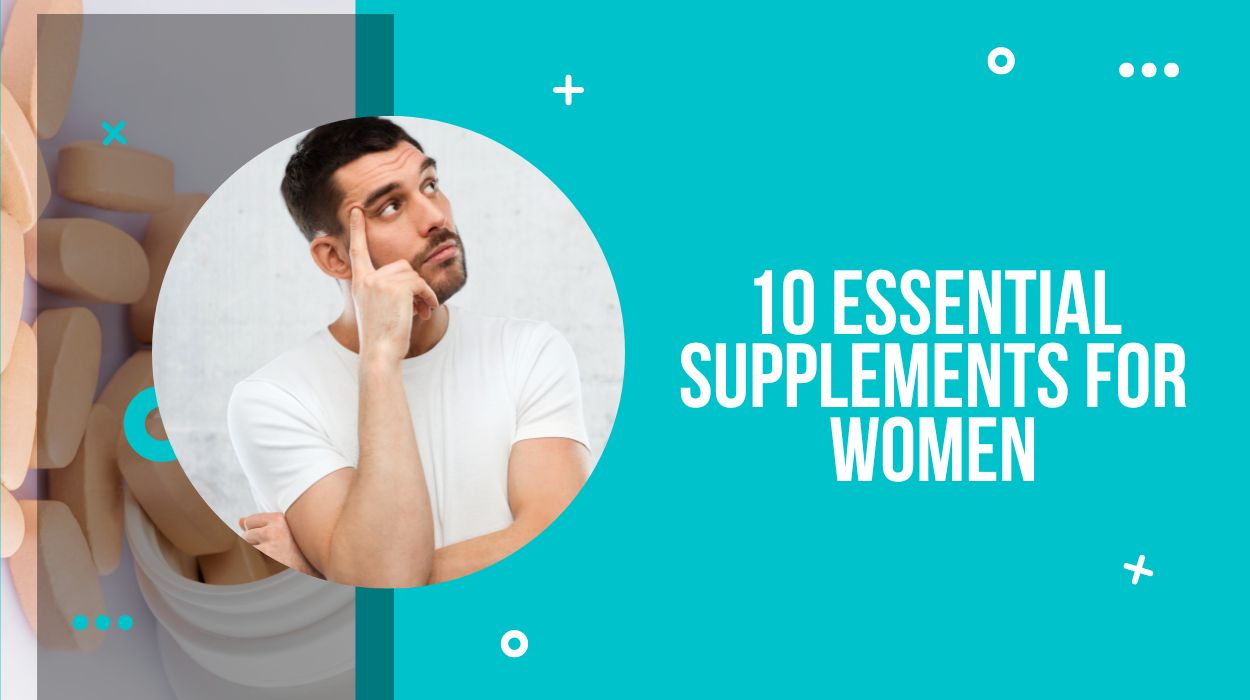Dietary supplements are commercially processed products which are either synthetic or natural sources of nutrients. They are consumed in order to make up for the lack of any specific nutrients or to simply give a boost to one’s diet. Supplements are available in the form of capsules, pills, powder, tablets and liquid. Examples would be amino acids, vitamins, minerals, fibre, fatty acids, enzymes and even herbs.
Since nutrient requirements of men and women are quite different, following are some supplement examples which are needed especially by women.
Top 10 Essential Supplements for Women
1. Iron
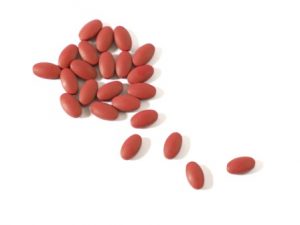
Women lose a lot of iron from their bodies during menstruation, pregnancy, nursing periods etc and may not consume the required amount from their diets. This is the reason why taking iron supplements is usually recommended.
Iron has many vital functions in the body. It helps the body make haemoglobin, which transports oxygen throughout the body via blood circulation. Iron intake reduces fatigue and improves muscle endurance, helps regulate body temperature and improves concentration and focus.
The RDI of iron for women aged 19-50 is 14.8 mg a day, while for women over the age of 50 it is 8.7 mg daily. The tolerable upper limit is around 45 mg.
Iron rich foods include: red meat, beans, dried fruits, spinach, liver etc.
2. Iodine
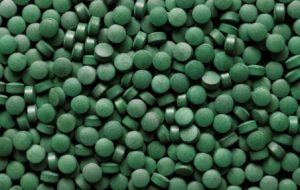
Iodine is required for the synthesis of the thyroid hormone in the body, which is needed for regulation of metabolism, development of brain, maintenance of bones (especially during pregnancy) and various other functions. It helps in the formation of breast tissues and production of progesterone and oestrogen in the ovaries.
The recommended dietary intake (RDI) for women is 150 mcg every day, with an upper limit of 1100 mcg. For pregnant and lactating women, the RDIs are 220 and 290 mcg respectively. However, one must make sure to consume iodine in controlled quantities and increase the dose only after consulting a doctor, because excess iodine in the diet can trigger hyperthyroidism, in some cases.
We get iodine from iodised food products- be it dairy products, bread etc. Fishes are rich natural sources of iodine.
3. Vitamin D
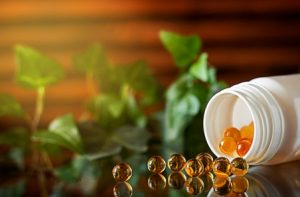
Vitamin D, also called the ‘sunshine vitamin’, is so named because our bodies produce it naturally when we are exposed to sunlight. Vitamin D is essential for the absorption of calcium in the body. The two nutrients work together in order to protect our body’s bones; even if one is consuming enough calcium, it is practically useless if your body is deficient in vitamin D.
Since Vitamin D is not readily available in many foods, supplements are a good idea if one cannot manage to get the required amount of time out in the sun, or if Vitamin D rich foods like egg yolk, salmon, liver etc are missing from the diet.
The RDI of Vitamin D for women aged 14-70 is 15 mg per day and for women older than 70 is 20 mg per day. The daily upper limit is 100 mg daily.
4. Calcium
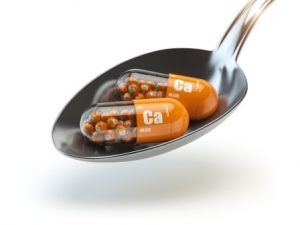
As mentioned earlier, calcium is a vital nutrient that works in combination with Vitamin D to promote bone and muscle health in the human body. Around 99% of our body’s calcium is present in our bones and teeth alone. It also helps in blood circulation, regulates muscle functioning and promotes blood clotting. If there isn’t enough calcium present, the body will start absorbing it from the bones, thereby weakening them.
The calcium requirements of women differ slightly depending upon their physical condition and age. While ordinarily a woman who is under 50 would require 1000 mg of calcium daily, in the cases of pregnancy, lactation or old age, she’d require about 200 mg more.
Sources of calcium: milk and dairy products, leafy vegetables, soya, legumes.
5. Magnesium
Magnesium has quite a lot of health benefits, especially for women. When you’re pregnant, magnesium helps the body build and repair body tissues. It regulates blood pressure naturally, prevents blood clotting and helps dilate blood vessels. Some studies show that this mineral also significantly improve PMS symptoms. Magnesium may also lower the frequency of migraine attacks.
Health problems associated with magnesium deficiency include diabetes, loss of appetite and tiredness, muscle spasms and cramps, chronic diarrhoea and so on.
The RDI of magnesium is 360 mg for teenagers, 310 mg for women aged 19-30 and 320 mg for women over 30.
Sources of magnesium are: whole grains, wheat germ, oat bran, tofu.
6. Omega-3 Fatty Acids
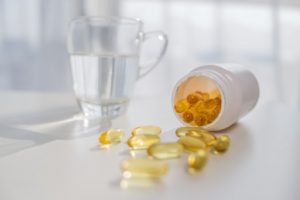
Omega-3 fatty acids are vital for the health and well-being of women. They are crucial for brain development in infants. Pregnant women should include these nutrients in their diet in order to make sure that the unborn child reaps the benefits. They are great for our eyesight, because DHA, a type of omega-3, is a major component of the retina of our eye. They are also excellent for our heart health- they reduce our triglyceride level and blood pressure level, prevent blood clotting and raise HDL cholesterol levels (which is good for you).
Lack of omega-3s in your diet can lead to fatigue, heart problems, poor circulation, dry skin and so on.
The RDI of Omega-3 fatty acids (in total) is 1100 mg for women, on a daily basis. However, one shouldn’t consume more than 3000 mg in a day.
Omega-3 rich foods include: flaxseed oil, walnuts, tuna, sardines.
7. Zinc
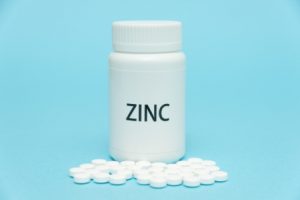
There are various benefits to taking zinc supplements. It gives a boost to our immune system, helps control blood sugar level, keeps the heart healthy, promotes good vision, helps in blood clotting etc. It also helps us maintain our senses of taste and smell.
However, one should be careful while taking zinc supplements- in controlled quantities it is highly beneficial, however, an excess of it may cause the body’s copper levels to drop and induce symptoms like nausea, loss of appetite, vomiting etc.
The recommended allowance of daily zinc intake, for women, is 8 mg. The tolerable upper intake level (UL) is 40 mg.
Zinc rich foods include: Oysters, shellfish, lentils, eggs, whole grains.
8. Fiber
Fibers, also known as roughage, are indigestible carbohydrates which the body is unable to break down. These components of food are flushed out of the body along with excreta. In fact, dietary fiber adds bulks to our stool and helps in its easy passage, thus aiding in digestion and helping prevent constipation. This also lowers the risk of developing colon cancer. In addition to this, fibers help control the blood sugar level and lower the cholesterol levels of the body.
However, if fiber intake exceeds the required amount, it may lead to problems such as constipation, bloating, flatulence etc.
Women aged 50 or younger are recommended to consume at least 25 g of fiber every day. Women above the age of 50 require around 21 g of fiber every day.
Foods that are good sources of fiber: brown rice, oatmeal, sweet potatoes, corn.
9. Probiotics
Probiotics are a mixture of good bacteria that live naturally in our bodies (mainly in the gut). While bacteria are commonly known to cause diseases, recent studies have shown that supplementing your body with probiotics is extremely beneficial. Supplementing the body with probiotics lends balance to the level of microorganisms.
Probiotic therapy can treat or prevent illnesses or conditions like allergies, irritable bowel movement, gastrointestinal ills, urinary track infections in women etc. It can trump even conventional medicine in some cases.
It is safe to take probiotics every day, in controlled amounts- in fact, it is recommended. However, there is no prescribed dose as such.
10. Vitamin B Complex

Vitamin B complex is an umbrella term for eight B vitamins (B-1, B-2, B-3, B-5, B-6, B-7, B-9, B-12) These essential vitamins are vital to our bodily functions and have a variety of functions. Vitamin B complex supplements include all these vitamins in one tablet or pill.
Vitamin B complex promotes cellular growth, cardiovascular health, immunity, hormone production, proper functioning of nervous system. These vitamins are especially important for pregnant women since they aid in the development of the foetus’s brain and reduce any risk of birth defects.
However, an overdose of vitamin B complex may lead to serious side effects, such as nausea, vomiting, high blood sugar levels, increased urination, cramps etc.
The formulation of each multivitamin pill is slightly different, so one should consult a doctor before consuming the supplement.
Nutritional supplementation is a very popular phenomenon in today’s time and should certainly be adopted to promote the health and well-being of the individual as well as make up for any lack in their diet.

